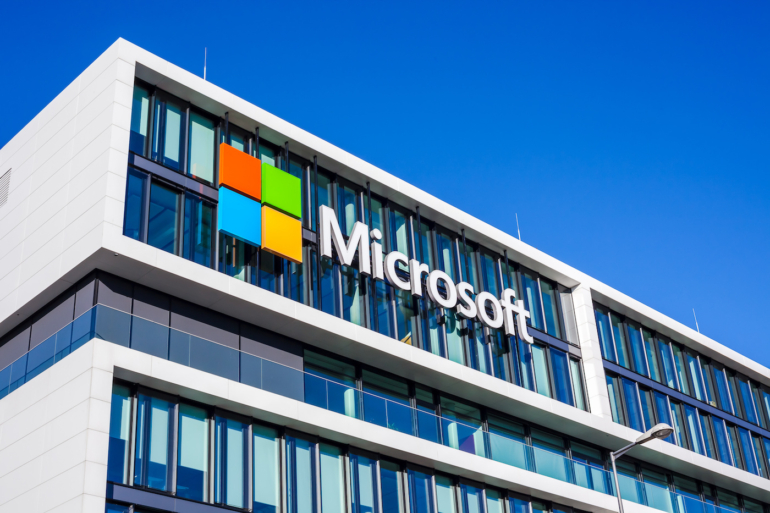The company seeks to make Azure OpenAI Service the best platform to build AI workloads, with ChatGPT access to follow soon.

AI-powered technologies have become more than a trend in recent times, and every technology company wants to be part of the conversation. Microsoft is no exception. The tech company has just announced that its Azure OpenAI Service is generally available, giving access to a broader audience.
This new development will allow more businesses to apply for access to some of the most advanced AI models in the world, such as GPT-3.5, Codex and DALL-E 2.
The availability of Azure OpenAI Services will also give customers access to ChatGPT, a large language model chatbot developed by OpenAI which has gained a lot of traction since it was launched in November 2022.
Microsoft’s Azure OpenAI Service is barely two years old, having debuted in November 2021, but it has evolved tremendously. With the addition of DALL-E 2 and a partnership with OpenAI, Microsoft could be primed to move beyond rhetoric and edge other key rival AI services and cloud providers like Google Cloud and Amazon Web Services.
OpenAI is an AI general intelligence research and development company, and although it offers its services directly, many would interpret Microsoft’s ongoing partnership with the company as a move to position itself as the commercialization portal for OpenAI products.
SEE: Hiring Kit: Cloud Engineer (TechRepublic Premium)
Jump to:
What this means for Azure customers
Azure Open AI services will run on Microsoft Azure’s cloud and other computing infrastructures and will support customers from many fronts. In places where the Azure OpenAI Services were previously deployed, Microsoft claims that the service enabled customers to generate content to match shoppers with the right purchases, summarize customer service tickets and free time for employees to focus on more critical tasks.
This move is expected to enable customers of all sizes across various industries to do more with fewer resources, improve end-user experience and “streamline operational efficiencies internally.”
Microsoft also highlights that startups like California-based Moveworks and other large corporations like KPMG are already deploying the capabilities of Azure OpenAI Service to advanced use cases. The areas where the services have been tried include customer support, customization, and data analysis of search, data extraction and classification.
“At Moveworks, we see Azure OpenAI Service as an important component of our machine learning architecture,” said Vaibhav Nivargi, founder and CTO of Moveworks. “It enables us to solve several novel use cases, such as identifying gaps in our customer’s internal knowledge bases and automatically drafting new knowledge articles based on those gaps. This saves IT and HR teams a significant amount of time and improves employee self-service.”
Moveworks also expects their deployment of the Azure OpenAI Service to augment the way they do business.
“Azure OpenAI Service will also radically enhance our existing enterprise search capabilities and supercharge our analytics and data visualization offerings,” Nivargi said. “Given that so much of the modern enterprise relies on language to get work done, the possibilities are endless and we look forward to continued collaboration and partnership with Azure OpenAI Service.”
Azure OpenAI Service: What does it hold for developers?
This new development also allows Microsoft to push Azure into the market as the best platform for building AI workloads. According to Microsoft, Azure OpenAI Service will enable developers to work with high-performance AI models on a large scale with reliable uptime.
The company also added that Azure OpenAI would add more efficiency to Microsoft’s products, including GitHub Copilot, an AI programming tool for writing code faster, Power BI, which uses AI-powered natural language to automatically generate formulae and expressions, and Microsoft Designer, a tool designed to help creators develop content with natural language prompts.
SEE: Artificial Intelligence Ethics Policy (TechRepublic Premium)
The bigger picture of the OpenAI, Microsoft partnership
The launch of Azure OpenAI Services is part of a broader partnership between Microsoft and OpenAI that started with a $1 billion investment by Microsoft in 2019. This partnership has birthed a formidable coalition of engineers from Microsoft and OpenAI: Since then, both companies have partnered to develop new Azure AI supercomputing technologies and large AI systems, making Microsoft the exclusive cloud provider for OpenAI.
Similarly, it was recently revealed that Microsoft is in talks for an additional $10 billion investment in OpenAI, raising its stakes in the company. Whether these high-scale investments would put Microsoft at the top of the AI service market remains to be seen. What is clear, however, is that we are about to witness a long evolutionary trajectory of AI models and how they can support various industries in the near future.
There’s more on Microsoft matters here: An introduction to Microsoft Syntex, and news that the firm retracted its report on Mac ransomware.
